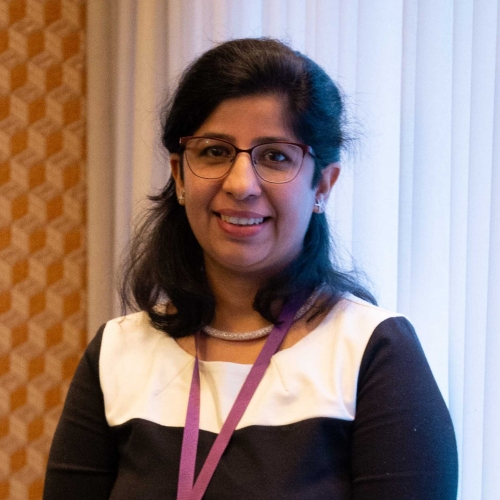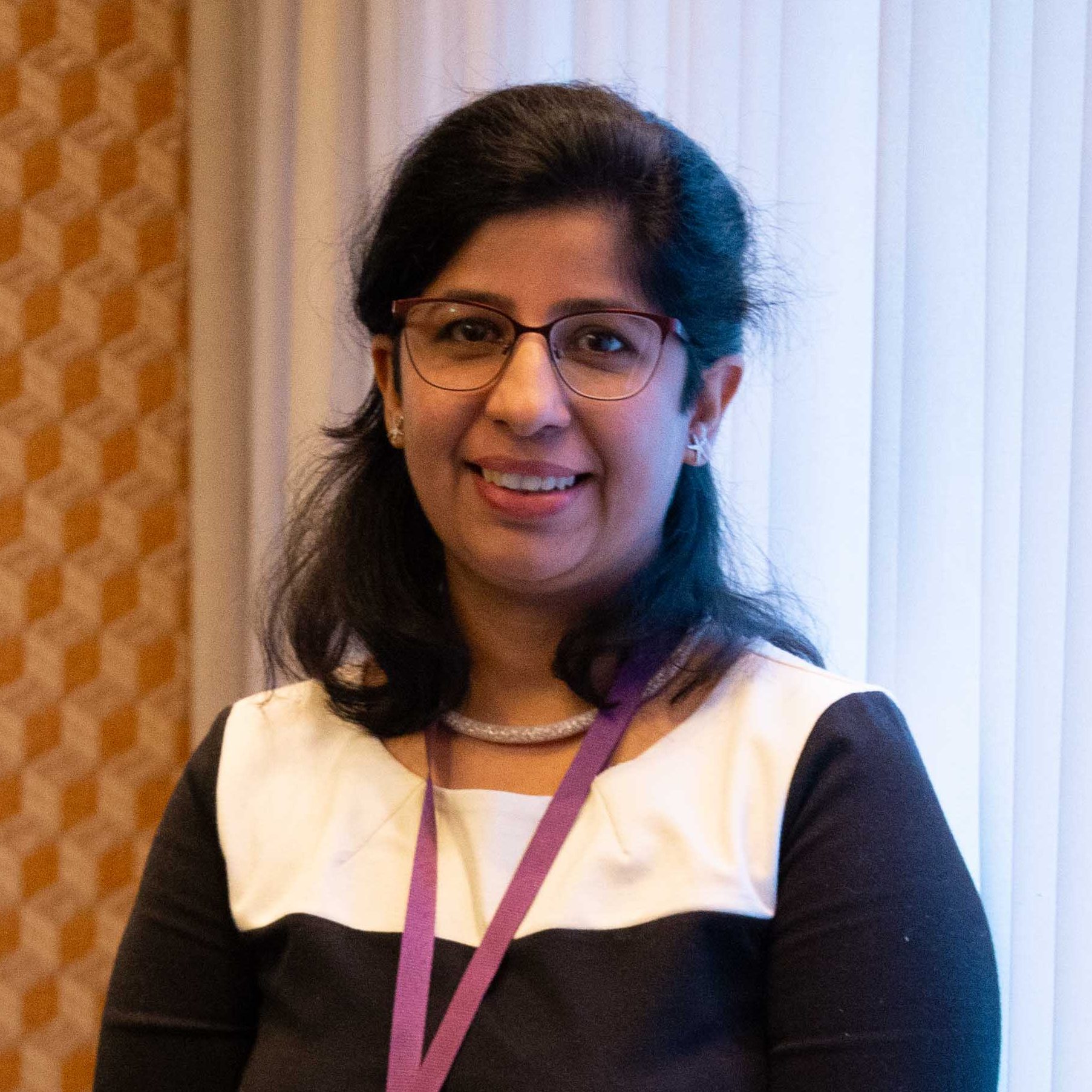
Ekta Sharma
University of Southern Queensland
Ekta is working on modelling and real-time optimisation of air quality predictions for Australia through artificial intelligence models. She is undertaking her research in the School of Agricultural, Computational and Environmental Sciences at University of Southern Queensland. Ekta graduated in Mathematical Sciences and majored in Operational Research from University of Delhi, India. She worked for around 5 years with the Zurich University of Applied Sciences and Indian universities before moving to Australia. She has a further 8 years of experience in the supply chain management. Ekta has contributed immensely to the projects of the Commission for Technology and Innovation which is one of the world’s most successful Swiss state funding agencies for innovations in research. She has experience in applying mathematical optimisation techniques to diverse fields, to assist in key operational decisions and provide robust solutions under uncertainty. Working with different cultures and backgrounds for 10 years and assisting in ‘Cross country and International building team’ for inter-student exchanges between Asia-Europe and Asia-Australia she understands the requirements, establishment, and expansion thereof. When not researching, she works as an active volunteer for children from 4-14 years of age with mathematical and statistical learning disabilities.
Can you give me a quick overview of the type of mathematics you are studying and its potential impacts for the broader community
My current research involves developing short- and medium- scale optimisation models of air quality predictions for Australia through artificial intelligence algorithms. I am comprehensively considering the importance of synergistic effects of atmospheric variables at key sites in Australia and developing smart, robust models that would allow hourly forecasting of air pollutants and hence a step towards achieving the fundamental resource to well-being.
I have used optimisations for several real-world applications:- from scheduling of ageing gas network models to planning an optimisation model for a Swiss telecom giant and most recently with a current multidisciplinary research work amalgamating latest artificial intelligence techniques with environmental modelling. In each of these projects, optimisations proved to be incredibly beneficial. In particular:
- Planning and Optimization of Marketing Campaigns under Dynamic Customer behaviour for Swisscom, a major telecommunications provider in Switzerland. I developed a strategic tool and working simulation model with an algorithm for improved decisions helpful for long-term planning. My results demonstrated a clear, universal improvement over the currently used sequential delay propagation approach.
- Optimisation of Ageing models of European gas networks for hazard rate calculation, Project partner(s) – Am-Tec Switzerland AG, Signion GmbH, Eawag, Stadtwerk Winterthur and Industrielle Werke Basel. I proposed a new approach for the optimal management of infrastructure networks that allows to significantly perform at lower costs. This is particularly important as all countries who are members of the United Nations Framework Convention on Climate Change are required to report trace gas emissions.
- Advanced Scheduling and workforce optimisation’, Financed by Unit Pool AG (Public limited company), Project partner – Swiss Airlines. I constructed a working simulation model and optimised resources for the client.
You attended AMSI Optimise, what drew you to this event? What was the most valuable part of AMSI Optimise for you in terms of furthering your career in mathematical sciences?
I was drawn to the event because of the focus on applying optimisation techniques to different scenarios, the collaboration between academia and industry, and the discussion of women in optimisation which was particularly inspirational. The event was a great way to share my research and to hear about similar research and solution approaches.
Attending the conference and workshop led to discussions about algorithmic techniques with other researchers and students. It also helped to give me some solution ideas in my own future work on artificial intelligence modelling of air quality in Australia.
The key aim of Optimise is to strengthen research-industry collaboration within this key mathematics innovation space. How effective was this event in stimulating such discussion and opportunities?
The event was very effective in encouraging researchers to collaborate with industry. Discussions were helpful and insightful as to which type of projects industry are looking to collaborate, and their expectations as to the project outcomes and timelines as well as communicating effectively with them.
What do you think are the key challenges for Australian industry-research collaboration within optimisation? What needs to happen to strengthen these linkages?
Close communication between the industry and the research, academia is required. Joint conferences and events like AMSI Optimise which include participants, both from industry and academia should be organised on a regular basis.
How important was receiving a CHOOSEMATHS grant in terms of your ability to attend and fully participate in the AMSI Optimise 2019 sessions throughout the week?
Receiving the CHOOSEMATHS Grant was the key in providing me the opportunity to attend and actively participate for the duration of the conference and workshop with a worry-free mindset and concentrate on learning the content.
How important are initiatives such as the CHOOSEMATHS Grants in terms of fostering the participation and achievement of women in mathematics, particularly in terms of access to networking opportunities and further training opportunities?
The CHOOSEMATHS Grant promoted diversity. My attendance at the optimise also afforded me the opportunity to observe and entertain the idea of different career directions in the future, and the professional community support structures available. These grants are great at allowing women to increase their networking opportunities and assist in enabling access to child-care support whilst attending the conference, which enables access in what would have been a more difficult time-of-life to attend them.
The CHOOSEMATHS Grants are part of a broader program being delivered by AMSI Schools with support from BHP Foundation to turn the tide on Australia’s maths deficit and strengthen maths education and participation of women across the discipline. What do you see as the big challenges facing maths in Australia, particularly for women?
Interventions need to happen much earlier on. I have seen students, particularly women, greatly improve in mathematics because of the encouragement and training from maths teachers who have both the passion for and strong academic knowledge in mathematics. Young girls need to be shown more female role models in mathematics. Later, the challenge of returning to the workforce after having children can be challenging, especially if it has been a long career interruption. I think the grants will be quite helpful in assisting such women to get a foot in the door, through assessing a longer-term track-record instead of just the last few years when applying for jobs.
Did you always want to pursue a career in maths? Were you encouraged to study these subjects at school?
I am blessed to be surrounded by a few very encouraging people in my life who mentored me to study what I really enjoy. My mother, who was a Maths teacher was my role model who taught me the relationship between maths and real life and that I will use maths every day in my life. I was lucky enough to have a fantastic teacher in Year 10, who started every question by drawing a picture (which is something I’ve adapted myself). This helped me tremendously with visualising what we were trying to do and was the missing piece of the puzzle for me. These experiences helped me to graduate in Mathematical Sciences and later major in Operations Research. Presently, I have a brilliant team of mentors at University of Southern Queensland who inspire me and guide me at every stage. For the mentoring and advice of these people I will be forever grateful!
Where do you see yourself in five or ten years time?
Hopefully doing something I love! I have worked both in academia and industry and I envisage myself in pursuit of developing maturity in artificial intelligence through synergy of industry experience, student mentoring and academic activities with a healthy work-life balance.
Did you learn about new career options available to you that you were not aware of prior to attending AMSI Optimise?
Attending the conference and workshop enabled me to make many new connections and to achieve more confidence about my research. The talks I attended were varied in content, with different fields of optimisation represented. There were several scenarios and problems that I had never considered earlier. This event provided a platform to understand industry drivers and foster research collaborations, connecting business with Australia’s future workforce. In addition, the professional speakers were generous with sharing their knowledge and experiences which I found particularly useful for junior researchers. Attending this event provided me a good experience and I am sure will be very useful to my research career.
If a peer asked you if they should attend AMSI Optimise, how would you describe the conference to them?
AMSI Optimise is a fantastic opportunity for industry to connect with optimisation experts and together solve key business problems and identify new ways to drive efficiency.
CHOOSEMATHS is a wonderful opportunity assisting women in mathematics to participate in the event to enhance their mathematical skills and share their research.
Any other feedback/comments you would like to provide on the CHOOSEMATHSgrant or AMSI Optimise?
I would like to thank both AMSI and CHOOSEMATHS again for the opportunity to participate in such a well-run, and fun optimise event. Overall, I feel great satisfaction on reflection of my participation at the optimise event. I was also happy to express my experience of the event through regular social media posts, through which I hope to reach out to future students and encourage their attendance and pursuit of mathematics as a goal for a potential career direction.

